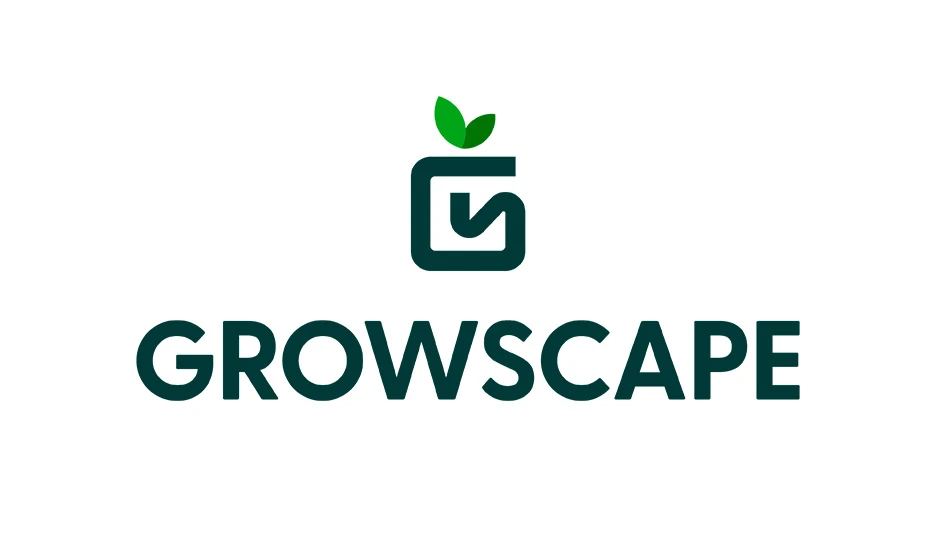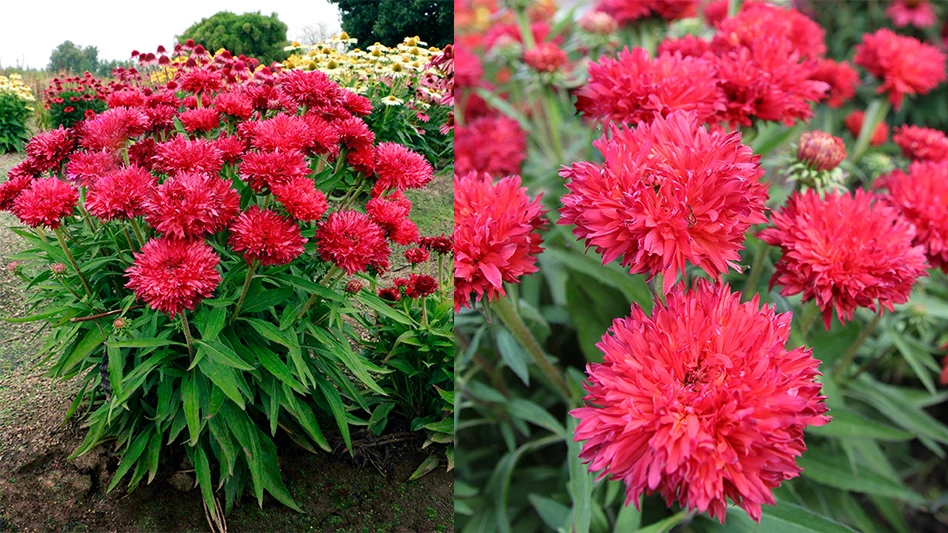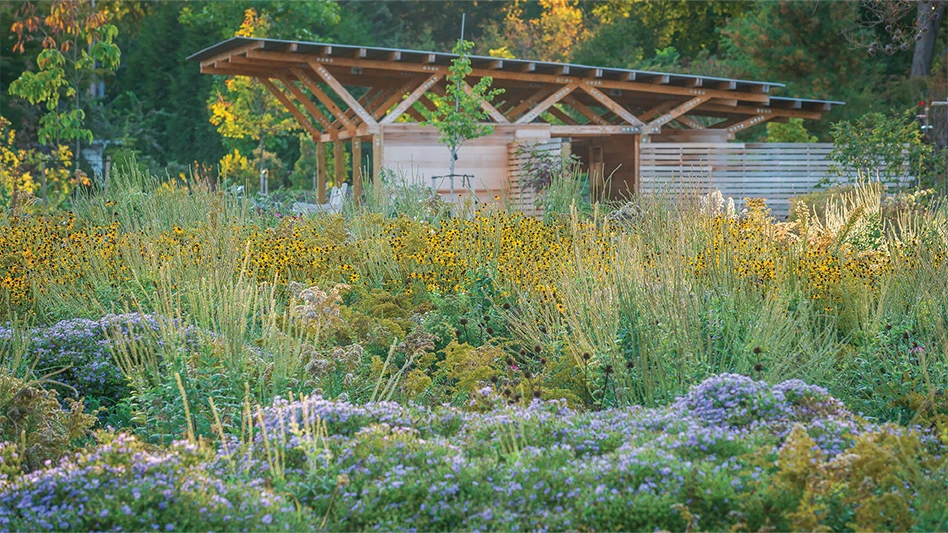 All-America Selections celebrates its 80th anniversary this year, and as part of the celebration, Greenhouse Management will interview a different AAS judge each month to talk about how he or she runs his or her business and what AAS means to them. This is the seventh installment of the 12-part series.
All-America Selections celebrates its 80th anniversary this year, and as part of the celebration, Greenhouse Management will interview a different AAS judge each month to talk about how he or she runs his or her business and what AAS means to them. This is the seventh installment of the 12-part series.
Rodger Tschanz ran as fast as he could as he saw the student turn on the hose at full spray and blast the seedlings from their trays and all over the ground.
 “When you’re dealing with co-op students term after term, you think you already told someone something, but no, you told a person last semester, and you haven’t told this person, so you have to constantly go through the checklist — have I informed them of this, this and this,” Tschanz says. “There’s always something that falls through the cracks.”
“When you’re dealing with co-op students term after term, you think you already told someone something, but no, you told a person last semester, and you haven’t told this person, so you have to constantly go through the checklist — have I informed them of this, this and this,” Tschanz says. “There’s always something that falls through the cracks.”
Tschanz is the trial garden manager in the department of plant agriculture at the University of Guelph in Ontario, and one of the biggest challenges he faces is finding enough labor. But one way he’s overcome that is by working with a local high school’s co-op program. Each fall he gets one student and each winter/spring he gets another. He also sometimes gets a summer student.
“I’ve had co-op students now who have gone on to do degrees with universities and other colleges to study horticulture,” he says. “I give the students a good, realistic, but positive and enjoyable, experience with horticulture and give them a taste of the different things that are out there. … That’s what’s important.”
|
University of Guelph and AAS When the University of Guelph was getting started with its trial garden, Rodger Tschanz thought involvement with AAS would help. “I thought it would help with our profile and getting the word out that we existed as a trial garden,” he says. “We benefit from all the publicity that comes through All-America Selections.” He’s also had the opportunity to attend meetings and meet leaders in the industry, which has been helpful in understanding the future and issues in the horticulture world. “From a plant geek point of view, I love the fact that we get this neat stuff that nobody else is growing yet out there in the real world. For us to see it first, and for visitors to the garden to see it first, it’s a real plus,” he says. He also enjoys working with companies he’s never heard of before. “There’s smaller European companies trying to enter the North American market, and they see the All-America Selections program as a way of economically testing the material in this continent,” he says. “I get to see smaller companies, and they get to see us as a trial site and hear about our feedback.” |
The way the program works is that students express an interest in different co-ops they’d potentially like to pursue. Tschanz then interviews three to four students, and then based on those interviews, students choose their top co-ops and Tschanz chooses his top students. Sometimes they match perfectly, and sometimes they don’t, but either way, Tschanz hopes he gets someone enthusiastic and willing to learn. The students that co-op for him during the year work part-time, but a summer co-op is full-time and provides for greater learning opportunities.
“When they’re only coming in for a half a day, they’re limited in what they can do sometimes,” he says. “I have trial sites at Guelph, another at the Landscape Ontario office and another at the botanical gardens in Burlington, so we travel around a bit, and when you’re only with me a half a day, you miss the boat, so to speak.”
Tschanz does his best to teach students the basics, which they can then take with them if they pursue a career in the field.
“I give them a grounding in how I do horticulture,” he says. “Everyone is going to train them again on how we do it here in this greenhouse, but I think there’s a basic fundamental understanding about the knowledge of plants. To look at a leaf and realize Plant A is different from Plant B, and [it’s] teaching them to observe and really look at the plants.
“For some of them, if they haven’t got a plant background, looking at plant material is like looking at a foreign language in a way. You see all the characters, but you don’t start to see the patterns between the characters and that a marigold looks different than a zinnia. That sounds simplistic, but it’s a fundamental aspect of horticulture to see the environment and let it sink in.”
Students also learn other key skills – like watering – and the do’s and don’ts involved with it.
“There’s a cause and effect here and [it’s] being aware of your actions and their impact on plant growth,” he says.
Which is why educating the student who turned on the hose at full spray above the seedlings about how that impacts the plants is important.
“It’s usually because of me not explaining things properly at the beginning when we have problems, and I take full responsibility,” he says. “Just assume they don’t know it, and that’s always the safest part. Go through it.”
He also teaches the importance of labeling.
“If you’re doing transplants, once you transplant those plants, and you haven’t put a label with it, I have no idea what it is,” Tschanz says. “I try to communicate the importance of always tracking what you’re doing and make sure everything is properly labeled. Those are basics that they can certainly take on to different levels.”
If you decide to contact your local high school to create a co-op or internship program, Tschanz does have some advice in working with the students.
“Just assume they don’t know anything when they start,” he says. “Be patient. I’ve learned to be patient with them and realize that if they’ve taken the co-op job for the right reasons, they’re there to learn, and they want to do a good job for you in the end. They’re coming from such a variety of different backgrounds, you just can’t assume they know what we know or what we think is common sense.”
For more: University of Guelph, www.uoguelph.ca

Explore the July 2012 Issue
Check out more from this issue and find your next story to read.
Latest from Greenhouse Management
- Grant awarded to test western U.S. wood species for use as wood fiber potting substrate
- Pennsylvania Horticultural Society announces 2025 Gold Medal Plant winners
- Oasis Grower Solutions announces new Southeast territory sales manager
- How to reduce labor in greenhouse vegetable production
- A nation of gardeners: A history of the British horticulture industry
- Last Word with Angela Labrum, Bailey Nurseries
- Iowa plant supplier Plantpeddler building retail complex
- This month's Greenhouse Management magazine is about native plants and sustainability





